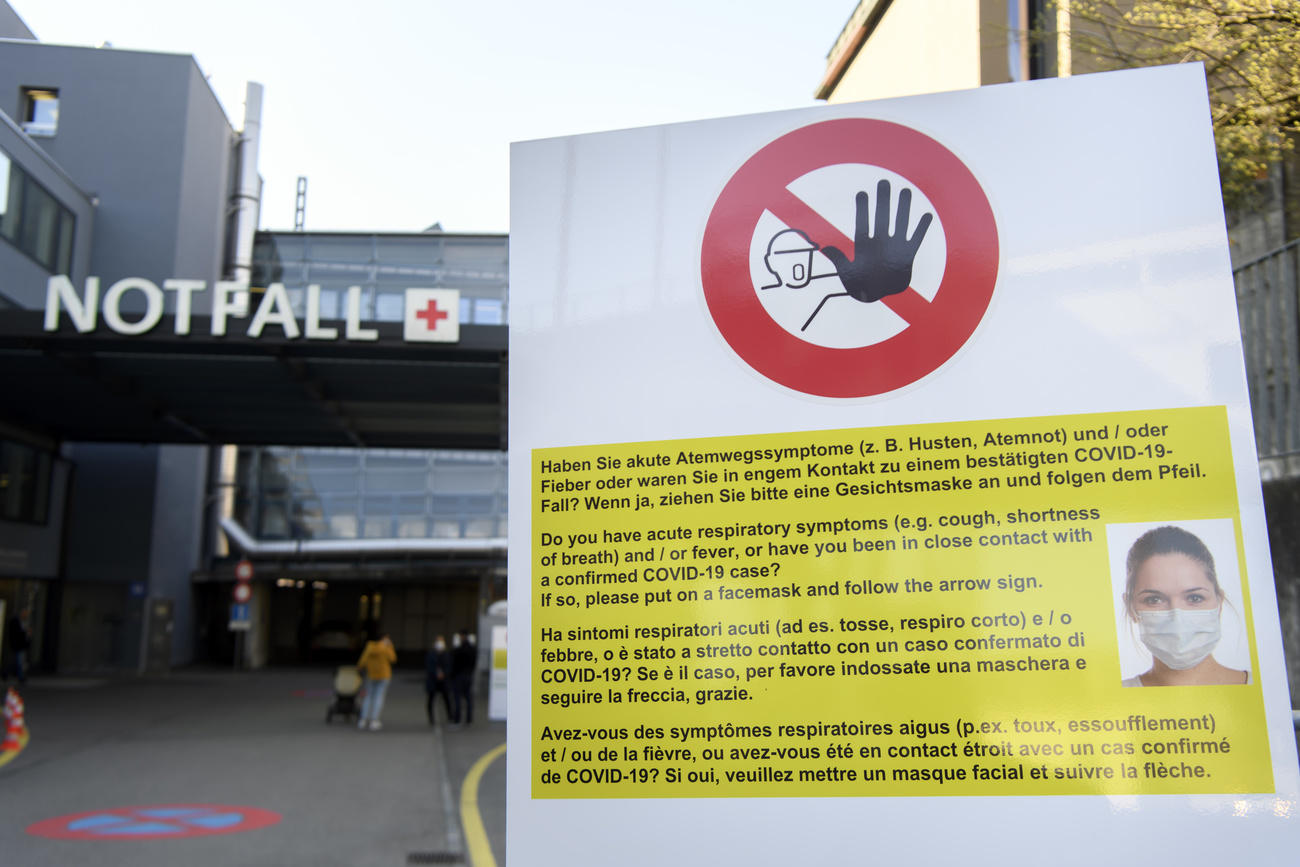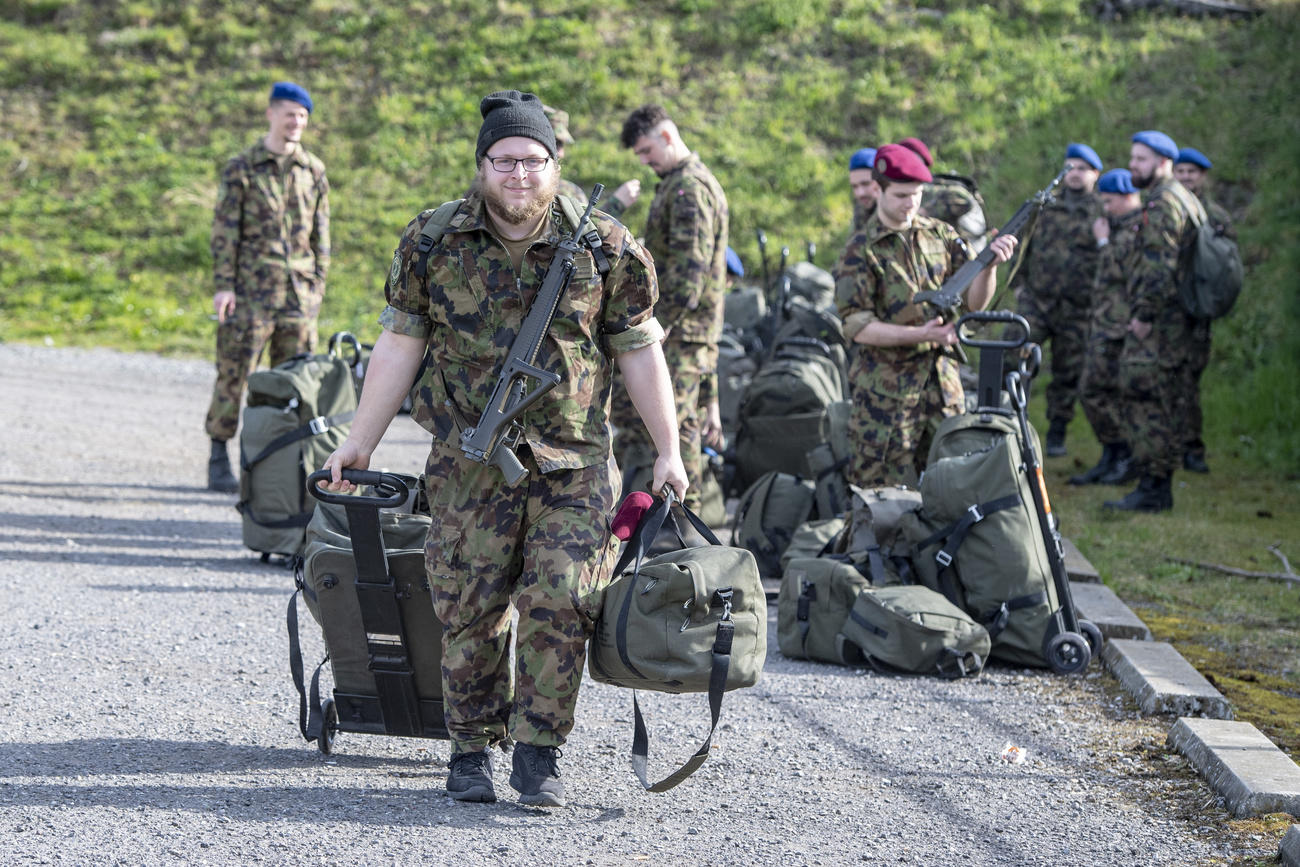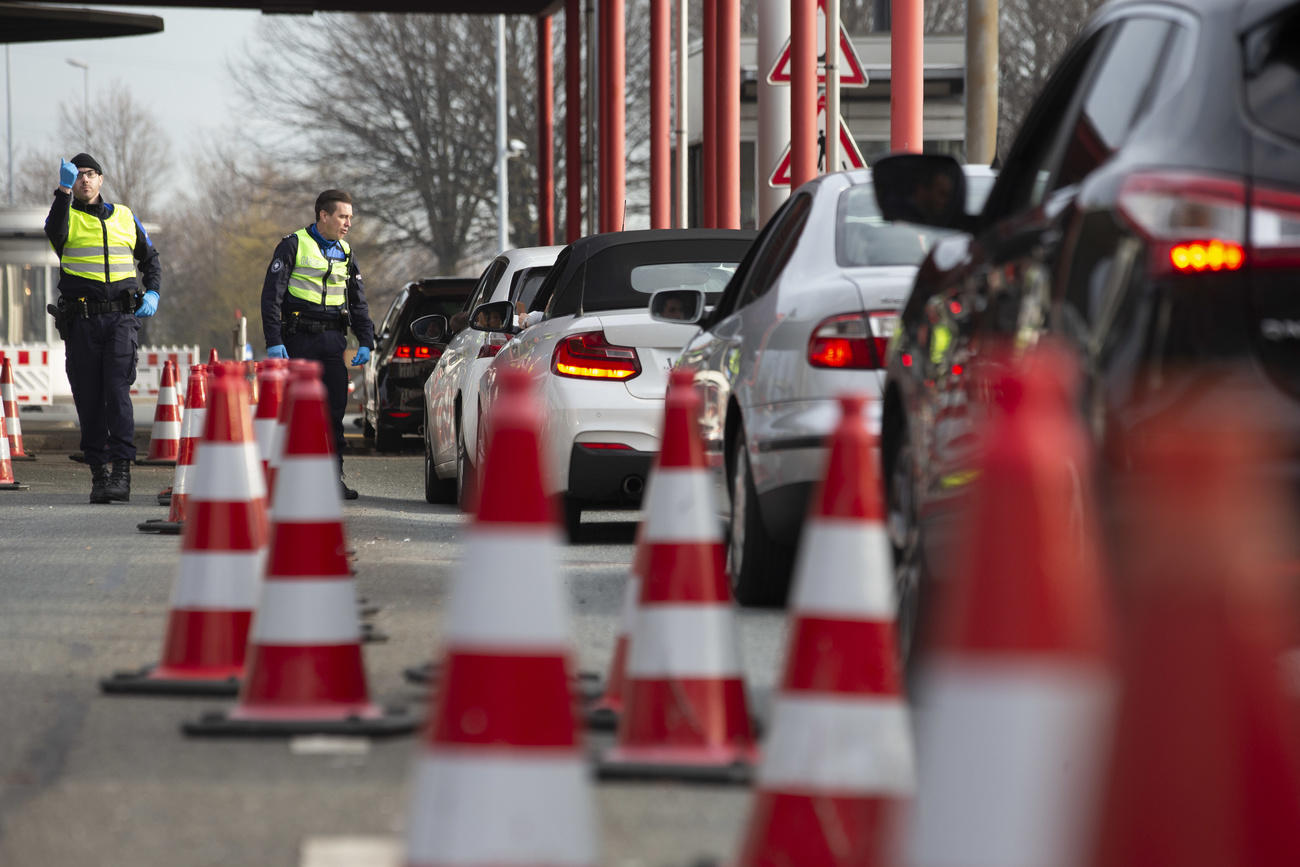Bern in the time of coronavirus

"Everyone has a strong opinion on the coronavirus,” says former swissinfo.ch journalist Gaby Ochsenbein, who describes the unprecedented situation in the Swiss capital, Bern, created by the coronavirus outbreak.
What a glorious spring day it is in Bern, during such bleak times. The coronavirus is omnipresent – invisible, but perceptible. Everyday life has changed, diluted, and the stately pace in Bern has slowed down to a crawl. There is a lot on people’s minds.

I awake to the beautiful sound of chirping birds, but today something is missing: the lively laughter and chatter of children running past my house at eight in the morning, trying to get to the local school on time. It is the first day of the national lockdown in Switzerland and schools are closed.
The children have to stay at home to help slow the spread of the pandemic. It’s even quieter than usual in the crèche down the street. Many parents are keeping their young pre-school children at home as well, out of solidarity and a sense of responsibility toward others.
On my walk to the River Aare, an elderly man from the retirement home next door feeds the crows breadcrumbs, as he always does. He greets me kindly – as always. Further down the river, two ten- year-old boys are fishing. They don’t seem remotely unhappy that school has been cancelled.
Ghostly calm
On Parliament Square – the Bundesplatz – there is nothing but overwhelming emptiness. The traditional bustling farmer’s market, which usually takes place today, has been closed to protect the population. Likewise, all restaurants, cafes, and cinemas have been shuttered. How long will it be before I can once again enjoy a coffee and read the newspaper at my favourite café, I wonder?

Virtually all shops that do not sell everyday essentials – groceries and medicine – are shut. The same goes for bookstores. In a sign of the times, a placard on one shop philosophises, “corona time is reading time”. Of course, books and many other items can always be ordered online.
The city is so much quieter than usual; the atmosphere is eerie, almost ghostly. And people are highly conscious of themselves and their physical space. Some look around suspiciously, even fearfully, at fellow pedestrians, and refrain from crossing the street where there’s a possibility of coming into closer contact with another person.
Elbowing
People have also started to use their elbows instead their fingers to press the buttons that open tram and bus doors. And the elbow is also extended to greet friends, replacing the hugs and the traditional three-kiss greeting in Bern. It’s strange, everyone comments, but it makes sense. The situation is serious.
Up until recently, I shook hands with my Kurdish-Iranian German student before class – another traditional Swiss custom. Not anymore. He tells me that the asylum centre has instructed them to wash their hands regularly and to keep their distance from one another. This is no mean feat, as six to eight people share a room.
What would it be like if Switzerland were to institute a curfew, like in Italy? There people can only leave their homes or apartments to go to work or to shop for essentials. I read that in Italy, people with dogs are allowed go outside to walk them. But I don’t have a dog. I couldn’t get one even if I wanted – the pet stores are closed. And buying a dog online is not possible. But books, yes. Corona time is reading time!

More
Coronavirus: the situation in Switzerland
Translated from German by Kathleen Peters

In compliance with the JTI standards
More: SWI swissinfo.ch certified by the Journalism Trust Initiative











You can find an overview of ongoing debates with our journalists here . Please join us!
If you want to start a conversation about a topic raised in this article or want to report factual errors, email us at english@swissinfo.ch.